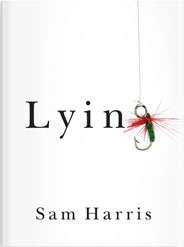Everything and Nothing
An Interview with Lawrence M. Krauss
Lawrence M. Krauss is a renowned cosmologist, popularizer of science, and director of the Origins Project at Arizona State University. He is the author of more than 300 scientific publications and 8 books, including the bestselling The Physics of Star Trek. His interests include the early universe, the nature of dark matter, general relativity and neutrino astrophysics. He is also a friend and an advisor to my nonprofit foundation, Project Reason. Lawrence generously took time to answer a few questions about his new book, A Universe from Nothing.














